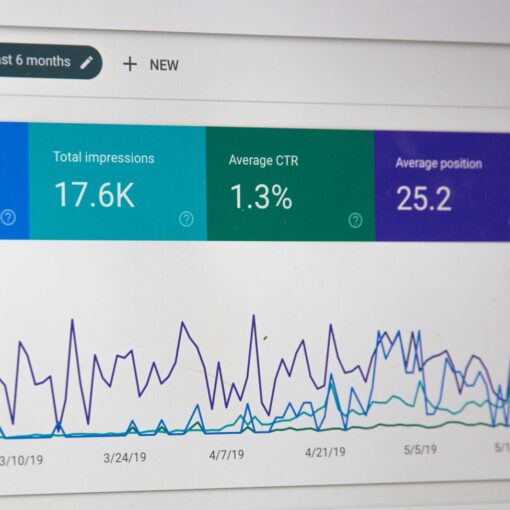
Welcome to the enchanting realm of search engine optimization, where every click is a potential goldmine and every keyword is your trusty steed. If you’ve ever felt like your website is playing hide-and-seek with Google, fret not! With a sprinkle of SEO magic and a dash of strategy, we’ll help your site rise from the depths of obscurity to the shining heights of search results glory.
In this digital age, having a beautiful website is like throwing a fabulous party but forgetting to send out invitations. It’s time to roll up our sleeves and dive into the art and science of SEO—because let’s face it, if you’re not on page one, are you really even in the game? Buckle up as we explore tips that will make your site the belle of the search engine ball!
Search engine optimization (SEO) is the practice of improving the ranking of a web page on search engines. The higher a web page ranks in search engine results pages (SERPs), the more likely people are to find it. SEO can be done by optimizing a web page for certain keywords, adding internal and external links, creating good titles, and creating well-organized content.
If you want your website to rank high in search engine results, it's important to optimize it properly. Here are some tips to help make your site come up first:
1. Make sure your website's title is accurate and descriptive. Add keywords where appropriate.
2. Use unique content that is relevant to the keywords you're targeting.
3. Place your site in good locations on the web, using keyword-rich anchor text links.
4. Install a search engine optimization (SEO) plugin or software on your website if necessary.
Tips For Optimizing Your Website Content for Search Engine Optimization
In order to optimize your website for search engine optimization (SEO), it is important to have a clear understanding of what SEO is and how it works. SEO is the process of improving the visibility of a website or web page on search engines by optimizing its content.
The first step in optimizing your content for SEO is to identify your target audience and understand their needs. Once you know what they want, you can create content that addresses those needs. You can also use keyword research to find related keywords and add them to your articles. Finally, make sure your website looks professional and easy to navigate by using HTML and CSS correctly.
If you take these steps, your website will be more visible on the internet and easier for people to find.
1. When creating website content, it is important to consider the search engine optimization (SEO) potential of your content. SEO can help improve your website’s visibility in search engines and boost traffic.
2. By following some simple tips, you can optimize your website content for better SEO results.
3. First and foremost, make sure your content is well-written and easy to read. Use keywords throughout your text, and make sure each page has a unique keyword focus.
4. Include factual information about your business or product in your articles, as this will help you rank higher in search engine results pages (SERPs).
5. Give readers clear instructions on how they can use what you have written to improve their own websites or businesses. This will encourage them to return to your site again and again!
Tips For Optimizing Your Website's Backlinks For Off Page Optimization
Getting backlinks from high quality websites is an important part of optimizing your website for off page optimization. There are a number of different methods you can use to get backlinks, and the best way to find out what works best for you is to experiment.
One common method for getting backlinks is through article marketing. When you write quality blog posts that discuss your niche, you can encourage other website owners to link to you as a source of information.
Another method for getting backlinks is by participating in online communities and forums relevant to your industry. By providing valuable insights and answering questions, you can attract links from site owners who are interested in what you have to say.
You can also generate backlinks through paid advertising campaigns targeting specific audience demographics or websites with similar content to yours.
1. To optimize your website's backlinks for off page optimization, make sure to focus on linking to high-quality websites.
2. When creating your backlink profile, make sure to include a link to your website, as well as other relevant information such as blog articles and social media profiles.
3. Be sure to target high-traffic websites and directories when building links, as these are the most likely sources of organic traffic for your site.
4. Use a tool like Google Webmaster Tools or Ahrefs to track the progress of your backlinks and make changes where necessary.
5. Keep an eye on your site's rankings and make tweaks to your backlink strategy as needed in order to improve visibility and ranking within search engines.
Choose The Right Keywords For Search Engine Optimization
When you’re trying to rank high in search engine results pages, it’s important to choose the right keywords. Unfortunately, this can be tricky because there are so many different options and it can be hard to decide which ones will work best for your website. Here are some tips to help you choose the right keywords:
1.Start by understanding your target audience. What do they want? What do they need? Once you know these things, you can start finding keywords that match those needs. For example, if you sell products that improve people’s lives, consider words like “life improvement” or “better life.”
2.Think about long-tail keywords. These are keyword phrases that are less common but still relevant to your target market.
When you’re optimizing your website for search engines, you need to choose the right keywords. A keyword is a word or phrase that people use to find information online. You can identify a keyword by looking at the 1st and 3rd paragraphs of your website’s content. The 1st paragraph is likely to be about the keyword, and the 3rd paragraph will talk about how your site can help visitors find what they’re looking for.
Use Keywords In Your Title And Meta Tags For Search Engine Optimization
Keyword usage is an important part of SEO. The best way to optimize your site for search engines is to use keywords in your title, meta tags, and content. This will help you rank higher in search results and attract more visitors.
Title Tag:
When writing your website’s title tag, be sure to include a list of relevant keywords. Use a keyword or phrase that is specific to your website topic; otherwise, you’ll have a harder time ranking for those terms. For example, if you sell women’s clothing, use “women’s clothing” as your title tag instead of “ Clothing Store.”
Meta Description:
Your meta description should also be full of keywords relevant to your website topic.
1. When creating titles and meta tags for your website, make sure to include keywords that are relevant to your topic. This will help improve your site’s search engine optimization (SEO).
2. Use keyword density when constructing your titles and meta tags. Aim for a minimum of 5 words per 1-word keyword. This will help ensure that your content is easily found by potential visitors.
3. Include the appropriate keywords in the <head> section of your HTML document. This is where search engines will see them first.
4. Use keywords throughout your content, including in the body text, in images, and in links.</p>
5. Avoid using too many generic or obscure keywords. People who are looking for information on a specific topic are likely to be more likely to find it if you target relevant keywords specifically.
Include Keywords In Your Content For Search Engine Optimization
Include keywords in your content for better search engine optimization. By including relevant keywords, you can help people find your content when they are looking for information on a specific topic. You can also improve the chances that your site will be found when someone is searching for information about a specific topic.
When creating content, think about the keywords that people might use to find information about a specific topic. Try to include at least two or three of these keywords throughout your article. This will help improve the likelihood that your site will be found when someone is looking for information on that topic.
You don't need to use every keyword that you think people might use to find information on a certain topic. Just include enough of them so that people who are searching for related information will find your article.
Make Sure Your Website Is Easy To Navigate For Search Engine Optimization
Search engine optimization (SEO) is the practice of improving the visibility and ranking of a website or web page in search engine results pages (SERP). SEO can be a complex process, but it is an important part of online marketing. A well-optimized website will rank higher in search engine results pages and attract more traffic.
There are several factors that can affect how easy a website is to navigate. Poor navigation can frustrate users and reduce traffic. Good navigation should be simple and easy to use, with clear instructions and links that lead to the desired content.
Here are some tips for making your website easier to navigate:
1. Use consistent design themes throughout your site. This will make it easier for users to find content and navigate around the site.
2. Include clear labels for all buttons, menus, and tabs.
Optimize Your Images For Search Engine Optimization
When you're optimizing your website for search engine visibility, it's important to take into account not only the content on your page, but also the images that are used. Images can play an essential role in helping people find what they're looking for, so it's important to make sure that your images are of the best quality possible.
There are a few things that you can do to optimize your images for search engine visibility:
1. Make sure that your images are high-resolution. Google prefers images with a resolution of at least 300 pixels per inch (ppi). If you don't have high-resolution images available, try to at least use photos that are resolutiony 800 pixels on the longest side or 600 pixels on the shortest side.
2. Use keywords in your image filename and alt text.
Image optimization is an important part of any online marketing campaign. By optimizing your images for search engine optimization, you can improve your website’s visibility and ranking in search results. Here are a few tips for optimizing your images:
1. Choose high-quality images. Images that are high quality will be more likely to rank well in Google search results. Make sure to use resolution-appropriate image sizes and formats, as well as properly formatted metadata.
2. Use keywords in your image titles. When you title or alt tag an image, include relevant keywords that may help it to rank higher in search results. For example, if you’re featuring a product on your website, include the product name in the title and the keyword “product” in the alt tag.
Use External Links For Search Engine Optimization
External links are a great way to improve your SEO. When you submit your website to search engines, include links from other websites that you think will be helpful for users looking for information about your products or services.
Search engines will consider these links as credible sources of information and may give your website a higher ranking in the search engine results pages (SERPs).
External links are one of the best ways to improve your search engine optimization (SEO). By including external links in your content, you can help give your website a better chance of showing up in search engine results pages (SERPs).
External links are important for SEO because they can help you rank higher on Google and other search engines. Including external links on your website not only looks good to Google, it also boosts the authority of your site.
There are many ways to include external links on your website. You can include them in the body of your content, in footer ads, or even in the header of your website. The best way to find out if external linking is right for your site is to experiment with different techniques and see what works best for you.
Beware Of Wasted Website Space When Doing Search Engine Optimization
With the growth of search engine optimization, more businesses are realizing the importance of conserving website space. Failing to do so can waste valuable bandwidth and decrease your ranking on search engines. Here are a few tips to help you avoid wasting website space:
1) Choose a web host with sufficient storage capacity. A web host's ability to handle traffic will determine how much website space is allocated for your site.
2) Minimize the use of images and videos. These files consume a lot of space and can slow down page loading times. Instead, use icons or text descriptions instead.
3) Remove extraneous files from your site. Files that are not necessary for visitors to see will take up precious server resources. This includes old versions of files, backup copies, and deleted files.
When creating your website, it is important to keep in mind the following tips:
-Do not overcrowd your website with unnecessary goods that take up precious revenue-generating real estate.
-Focus on high-quality, unique products that will attract customers and generate profits.
-Make sure all of your products are properly categorized and easy to find.
-Create a sales funnel that encourages customers to make purchases and get rewarded for their efforts.
These simple tips will help you create a successful online business.
Plan Your Website's Structure Such That It Is Simple For Search Engine Optimization
Search engines are designed to index and rank websites in a way that is based on their contents. A well-structured website will make it easier for search engines to determine what information is most relevant and should be ranked higher. Here are four tips to help you structure your website so that it's easy for search engines to optimize:
1. Conduct an online search for “site structure,” “search engine optimization,” or “SEO” to get started.
2. Make sure all of your website's content is organized into clearly defined sections. Use headings, subheadings, and labels when necessary.
3. Create unique pages for each major topic or section of your website. This will help users find the information they're looking for more easily.
4. Only include content that is relevant to your website's theme or topic.
When designing your website, it is important to keep in mind the structure that will make navigation easy for users. You should aim to have an ever-lengthening top-level directory that includes key words and phrases relevant to your business. Within this directory, you should create subdirectories for each of your main topics. This makes it easy for users to find the information they are looking for, without having to dig too deep into the hierarchy.
Additionally, make sure that all your content is easily accessible through links and hyperlinks. This will help users quickly get to the information they need, without having to sift through a lot of text. Finally, make sure that your website's design is simple and sleek; this will help it look professional and attract more customers.
Planning your website's structure in a way that makes it easy for search engine optimization is essential if you want to rank well in search engines. A well-executed SEO plan will focus on making your website as simple and user-friendly as possible, while also including the necessary elements to optimize it for ranking.
Search Engine Optimization Content Must Be Beneficial To The Reader
Search engine optimization (SEO) is the practice of improving the visibility and ranking of a website or web page in search engine results pages (SERPs). The aim of SEO is to rank a site higher in SERPs so that it can be found by more people. In order to be successful with SEO, you need to create content that is helpful to your readers and also ranks high in search engine results. You should also make sure your site’s structure and design are optimized for search engines.
In order to optimize your content for search engines, you first need to understand how search engines work. Search engines use algorithms to evaluate websites based on their information architecture, title tags, meta descriptions, images, and other elements. The more relevant and helpful your content is, the higher it will rank in search engine results pages.
Search engine optimization (SEO) is a process that can be used to improve the visibility of a website or web page in search engine results pages (SERPs). If people are able to find your website or page through search engines, it can lead to increased traffic and awareness. However, making sure your content is beneficial to the reader is essential for SEO success. Here are two tips for creating helpful SEO content:
1. Keep your content original. Copying and pasting existing content without adding your own spin will not help your site rank higher in search engine results pages. Instead, make use of keywords and other tools to provide valuable information that readers will want to know.
2. Use keywords throughout your content.
Create URLs That Are Easy to Remember for Search Engine Optimization
Creating URLs that are easy to remember for search engine optimization can be helpful in increasing website traffic. For example, using the same name as your company or product can help people find your website more easily. Additionally, using descriptive words and making sure all of your keywords are included in the URL can help improve your site’s ranking.
url. Easy to remember, simple to understand and user-friendly. Avoid long, complicated URLs that are hard to type and remember. Try using a URL shortener or creating a memorable phrase for your website's URL. Visitors will find these URLs easier to remember and use on your website.
Use keywords in your domain name and in the text of your website's URL. This will help improve search engine visibility and ensure that visitors find you easily. Make sure the text of your website's URL is easy to read, type, and remember. Try using a memorable phrase or a shortened URL for your website's name.
Avoid Using Too Many Different Keywords In Your Content
There’s nothing wrong with using multiple keywords in your content, as long as you’re aware of the potential consequences. keyword research is essential to ensure that your content is optimized for the right search engines. A keyword density of 3 percent or less is generally considered safe. Anything over 5 percent can start to clutter your content and make it harder for readers to find what they’re looking for.
Here are a few tips to help you avoid overusing different keywords:
1) Choose a limited number of targeted keywords that will accurately describe your content topic.
2) Make sure each keyword is prominently featured in your article title, meta data (tags), and throughout the text.
3) Use synonyms wherever possible to reduce the amount of unique keyword usage.
When creating content for your website, it is important to use only a limited number of keywords or key phrases that will inform visitors about what you have to offer. Too many different keywords can dilute the impact and effectiveness of your content.
A good rule of thumb is to keep your site's keyword count around twelve to fifteen. This will help you achieve an optimal balance between attracting new visitors and ensuring that existing ones find what they're looking for. When choosing your keywords, think about what your site's target audience would be interested in hearing about.
For example, if you run a fashion blog, include terms like “fashion trends” or “fashion tips” in your search list. If you sell home goods, include words like “interior design,” “home decorating,” or “property management.
Include Internal Connections On Your Own Website For Search Engine Optimization
Internal connections are a great way to improve website search engine optimization. By including internal connections on your own website, you can help your site appear more relevant to potential customers. Internal connections include links from other pages on your website, as well as from your site’s homepage. Including these connections will help boost your website’s visibility and ranking in search engines.
For businesses seeking to increase website traffic, utilizing one's own website to generate leads and exposure can be a relatively easy SEO tactic to implement. Internal connections within the website can help optimize content and drive organic traffic from search engines.
Top keywords that should be included in website content for increased visibility include the business' name and relevant services or products. Additionally, social media platforms should also be utilized to promote the site through sharing content and engaging with potential customers.
Avoid Including Flash Or Frames In Your Website Design For Better Search Engine Optimization
Flash, frames, and AJAX are all popular web development tools, but they have one big downside: they will not allow you to link to a single page. This means that if someone clicks on a link in one of these elements, they will be taken to a new page instead of being transferred right to the page they were looking for.
Flash is particularly problematic because it can often be used to embed videos and other multimedia content. This means that your users may never see the information they were looking for unless they click through all of the layers of content on your website. In addition, using these tools can increase your website’s load time significantly. If you want your website to look sleek and modern, avoid including Flash, frames, and AJAX into your design.
1. Flash and frames can be a nuisance when trying to link to a single page on your website.
2. AJAX, though popular, is no better. Not only are links not allowed, but AJAX can also slow down your website's loading time.
3. Make sure you're using HTML5 and CSS3 for optimal performance when designing your website. Both of these technologies allow for linking between pages as well as smooth animation and design.
4. Take the time to research which technology will work best for your website and go with that option; it'll save you time in the long run.
Flash and frames are often used in web design to create an appearance that is more appealing to the human eye. However, these features can have a negative impact on your website's search engine optimization (SEO). Google prefers websites that are simple and easy to navigate, so avoiding flash and frames will help your site rank higher in search engines.
Search Engine Optimization Is Not Complete Until Your Website Appears Towards The Top Of The First Search Results Page
Search engine optimization (SEO) is the practice of making your website appear higher up on web search engine results pages (SERPs). Although SEO is not complete until your website appears towards the top of the first search results page, there are a few things you can do to improve your chances. First, make sure all of your website’s content is high-quality and relevant to your target audience.
Second, optimize your website for the keywords and phrases that are most popular with searchers. Finally, create a strong online presence through social media and other online platforms. By taking these steps, you can ensure that your SEO effort is successful.
Search engine optimization (SEO) is the process of improving the visibility and ranking of a website or web page in search engines. It is an essential part of online marketing and can help to increase traffic to a site, as well as lead to increased sales. While SEO can be expensive and time-consuming to complete, it's important to remember that it's not complete until your website appears towards the top of the first search results page. Here are some tips for ensuring that your SEO campaign is on track:
Keyword research – Before you can begin any sort of SEO work, you first need to identify which keywords your site should rank for. This can be done through keyword research, which involves surveying what people are searching for on Google and other search engines, as well as looking at trends over time.
When planning a successful SEO campaign, it's important to keep in mind the following tips:
1. Choose the right keywords. The most important part of an effective SEO campaign is choosing the right keywords. Make sure to target relevant and important keywords that your website will be ranking for.
2. Keep your site updated and topical. Your website should be regularly updated with fresh content, which will help increase your website's search engine rankings and traffic.
3. Use keyword density correctly. Too little keyword density can result in low rankings, while too much can make your site look spammy and irrelevant to search engines. Experiment with different combinations and find what works best for your website.
4. Make use of link building opportunities. Creating quality links to your website is one of the key factors that will help increase its rankings on search engines.
Ask A Lot Of Questions If You Decide To Hire An Seo To Help You With Your Marketing
If you're thinking of hiring a search engine optimization (SEO) company to help with your marketing efforts, it's important to ask a lot of questions. Here are eight to get you started:
1. What are your SEO services specifically designed to do?
2. How many years of experience do you have in SEO?
3. How much will your services cost?
4. How often will you contact me to check on my progress?
5. What guarantees do you offer that my website will be improved as a result of your work?
6. Do you have any references from satisfied clients?
7. Will I be able to keep the original content on my website after your work is complete?
8. If I decide not to use your services, can I cancel at any time without penalty?
1. When you're considering whether or not to hire an SEO company, the first thing you should do is ask yourself a few questions. Do they have a good reputation? Are their services affordable? How long has the company been in business? Are they licensed and insured?
2. After you've answered those questions, make sure to ask your potential SEO company about their services. What exactly will they do for you? How many hours will it take them to complete the project? What kind of research will they do on your behalf?
3. Once you've got a good idea of what your SEO partner is capable of, it's important to decide how much money you want to spend. Is a hundred dollars per hour reasonable for a full-time employee's time, or can the service be cheaper if the project is completed in fewer hours?
An Effective Meta Tag Has A Few Well-Constructed Phrases
Meta tags are a very important part of any website. They help search engines identify and index the content on your website. Meta tags should be well-constructed in order to optimize your website for search engines. Here are a few tips for constructing effective meta tags:
1. Use keywords throughout your meta tag. Make sure to include keywords in the title, body, and alt attributes.
2. Use keyword variations in your tag. For example, you could use “todaysnews” as the keyword variation for “Today's News.”
3. Don't overdo it with keyword stuffing. In general, you should aim for 1-3 percent of all text in your meta tag to be devoted to keywords (excluding the title). That way, if someone does a search for “todaysnews,” they'll see only the relevant information from your website.
Meta tags are a way to give readers a quick snapshot of what they're about to explore. When you create a meta tag, it's important to keep in mind the following tips:
1. Use keywords that describe your page's content.
2. Make your meta tag clear and concise.
3. Keep your meta tag consistent across all of your pages.
4. Use descriptive meta tags that give readers a good idea of what they'll find on your page.
5. Be sure to test your meta tags before publishing them to ensure accuracy and readability.
Creating effective and descriptive meta tags is important for ensuring that readers know exactly what they're getting when they visit your page.
As we wrap up our SEO adventure, remember: optimizing your site isn’t just about appeasing algorithms; it’s about creating an experience that keeps visitors coming back for more. Think of yourself as a digital matchmaker—pairing users with content they didn’t know they were searching for!
So go ahead and implement these strategies with confidence. With each tweak and adjustment, you’re not just climbing search rankings; you're crafting an irresistible online presence that even Google can’t ignore!
Suggested External Resources
SEO Basics: A Beginner's Guide to SEO
https://moz.com/beginners-guide-to-seo
The Complete Guide to SEO
https://ahrefs.com/blog/seo-basics/
Search Engine Optimization (SEO) Starter Guide
https://support.google.com/webmasters/answer/7451184





